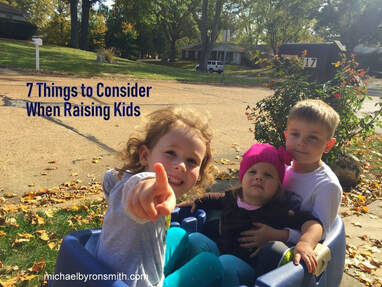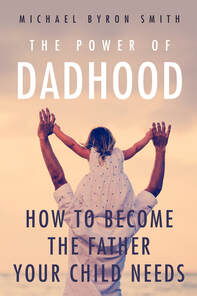 photo by author
photo by author
What is it that draws boys (or girls for that matter) to gangs? For some young people, acceptance is more important than the values a civilized society expects of them.
Acceptance
Most individuals want acceptance and will perform in ways to get it. Sometimes they will act in foolish ways to get it. In families, an individual's acceptance or feeling of belonging should be natural--but not without limits. If limits do not exist for or from a family member, then caring for that family member does not exist. One indication of caring or acceptance is getting attention; without it, there is no recognition of worth in the view of the one not receiving it. This situation creates an over-riding hunger for approval and belonging!
Quoting Mother Theresa, "The hunger for love is much more difficult to remove than the hunger for bread." In fact, a serving of bread can fill a stomach, but it takes time and much love to fill a heart.
Let's assume a boy, as an example, is in a home where the father is physically or emotionally missing. Let's also assume this boy has a loving mother to isolate the issue. This boy will have an emotional void whether he realizes it or not. A boy wants to become a man, not just biologically, but emotionally and just as importantly, in the eyes of society. He needs a proper mentor to do this because a mentor will praise a child's efforts leading to positive social values and condemn acts that hurt the child or others.
As stated by Jordan Peterson in 12 Rules for Life, "Sometimes, when people have a low opinion of their self-worth—or, perhaps, when they refuse responsibility for their lives –they choose a new acquaintance, of precisely the type who proved troublesome in the past. Such people don't believe that they deserve any better—so they don't go looking for it. Or, perhaps, they don't want the trouble of better."
Why might father-starved youth have a low opinion of themselves, or why do they seek the easy way out in life? In an obvious or even an obscure way, being rejected by a parent will significantly impact a child's personality, self-image, and self-esteem--and not in a positive way. It will forever determine how they relate and are accepted by and blend with others. This desire for acceptance and validation is one of the most potent motivating forces known to man. When parents don't do this for their child, it creates a void that needs resolution.
What does an involved father do for a child? In Fatherless Society by David Blankenhorn, Quadrant, 12/1/1997, he states clearly,
"Fatherhood is a social role that obligates men to their biological offspring. For two reasons, it is society's most important role for men. First, Fatherhood, more than any other male activity, helps men to become good men: more likely to obey the law, to be good citizens, and to think about the needs of others. Put more abstractly; Fatherhood bends maleness - in particular, male aggression - toward prosocial purposes. Second, Fatherhood privileges children. In this respect, Fatherhood is a social invention designed to supplement maternal investment in children with paternal investment in children.
Paternal investment enriches children in four ways. First, it provides them with a father's physical protection. Second, it provides them with a father's money and other material resources. Third, and probably most important, it provides them with what might be termed paternal cultural transmission: a father's unique capacity to contribute to the identity, character, and competence of his children. Fourth, and most obviously, paternal investment provides children with the day-to-day nurturing - feeding them, playing with them, telling them a story - that they want and need from both of their parents. In virtually all human societies, children's well-being depends decisively upon a relatively high level of paternal investment."
Further, from 'ScienceDaily,' "A father's love contributes as much -- and sometimes more -- to a child's development as does a mother's love. That is one of many findings in a new large-scale analysis of research about the power of parental rejection and acceptance in shaping our personalities as children and into adulthood."
From The Power of Dadhood:
"It is in the home where;
- Children should learn kindness, goodness, values, discipline, and manners.
- Children should find understanding, caring, and comfort.
- Successful lives should begin -- with open minds, encouragement, and love.
- Compassion should exist, where the safety nets of our children's failures are made of rubber bands, ready to sling them back into the world — stronger, wiser, and with new momentum."
So back to the question, "What is it that draws boys (or girls for that matter) to gangs?" A study by Stanley S. Taylor, California State University in 2013 entitled "Why American Boys Join Street Gangs," stated this;
"All of the psychosocial histories of gang members in this study were diverse, however there were several underlying consistent themes prevalent in each members life history (1) frustration and anxiety stemming from family problems such as fatherlessness, (2) sadness, frustration, and anxiety in home life (3) the feeling that they wanted an end to the frustration (4) expression of hostility through defiance of authority in the industry versus inferiority stage and physical violence in the identity versus role and confusion stage of psychosocial development and, (5) misconduct at school, mostly for fighting or bullying schoolmates, and (6) gang membership as a salient opportunity for peer recognition in their immediate neighborhood and community."
When Taylor's conditions exist, gangs can provide some of what is missing in a young man's life. Gangs give a young man a chance at acknowledgment and status, but he has to prove himself before he can belong. He must adopt the values of that gang, and if he does, he will find the acceptance and respect that alluded him in the past. But how do the values of a gang differ from the values of a nurturing family?
Values
Goodness, fairness, honesty, helpfulness are all values that are common in successful families. These values are missing in gangs. But the desire to belong and be a part of a group is strong enough to place any common values you may have had or never learned in the rearview mirror when acceptance to a gang requires new covenants. Here are a few examples.
Toughness
- Toughness as a value in a family situation would mean not giving in to peer pressure or trying even harder in tough times.
- But in a gang, toughness is defined by how unafraid you project yourself or how dominant you can be, which often leads to violence.
- Smartness as a family value is common sense and one's academic achievements or judging or making the right decisions.
- In a gang, smartness is the ability to outsmart or 'con' another person, i.e., cheating, taking advantage of others' weakness, conning people, and petty thievery are the hallmarks of a 'smart' gang member.
- Enjoyment in a family atmosphere would include reading, watching movies, playing sports, etc.
- A gang's idea of enjoyment too often includes gambling, sexual adventures, drugs, and alcohol.
As I stated in The Power of Dadhood, 'prevention' is so much easier than 'correction' when it is about your children's attitudes and behavior, and it must be taught as early in their lives as they can understand it.
Summary
A kid with a supportive family, constant encouragement, and self-worth can be resilient to adversity and negativity. He will feel comfortable in his skin and have the strength to be himself and uphold the values taught to him that he holds to be true. He has the confidence of a worthwhile person, as shown to him most often and best by his family.
Without group support, he will often find himself alone and with little self-worth. Low self-worth begets devastatingly low ambition and an unwillingness to crawl out of the hole he finds themselves in. That hole is dug deep by an unsupportive environment, a missing father, a busy mother, and non-existent mentors. Tragically, it is the support of a gang that may fill the gaps in all the wrong ways.
Without a supportive family or role model, a kid cannot say 'no' when 'no' needs to be said, i.e., when expected to do something against their inner voice. When support comes from a gang, a kid cannot say 'yes' when opportunity outside the gang exists. Trapped by a code forced upon him to remain a gang member, it will take much convincing to trust support outside of the gang to have a purposeful life.
* Note: "…..gangs tend to propel youths into a life of crime, punctuated by arrests, convictions, and periods of incarceration. The costs to society are enormous. Each assault-related gunshot injury costs the public approximately $1 million. A single adolescent criminal career of about ten years can cost taxpayers between $1.7 and $2.3 million."
* https://www.nationalgangcenter.gov/Content/Documents/Impact-of-Gangs-on-Communities.pdf














